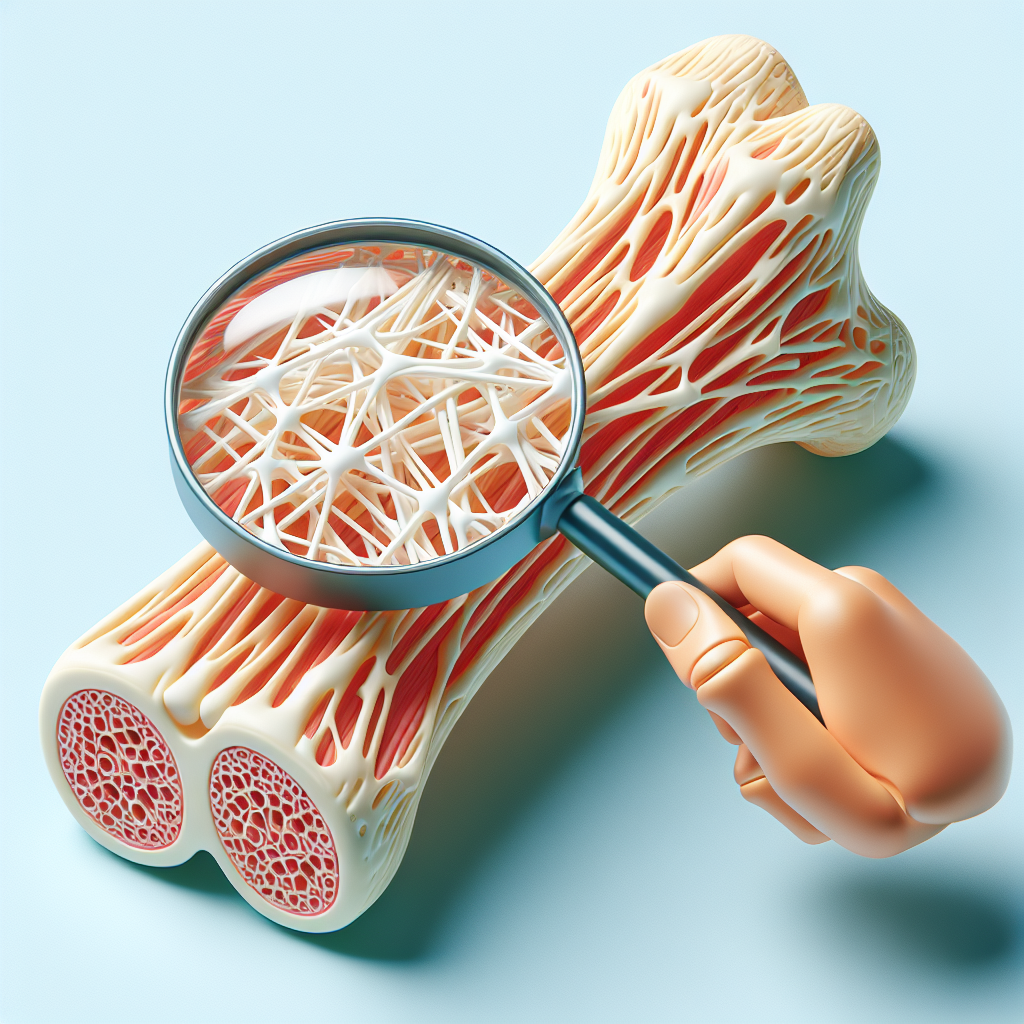Vitamin C, also known as ascorbic acid, is a nutrient of legendary fame for its antioxidant properties and its role in supporting the immune system. However, its contribution extends far beyond warding off the common cold. This vitamin is crucial in the synthesis of collagen, an essential protein that forms the structural foundation of bones. This article delves into the intricate relationship between Vitamin C, collagen formation, and bone health, unveiling how this nutrient is a cornerstone of skeletal integrity and longevity.
Vitamin C and Collagen Synthesis
Collagen is the most abundant protein in the human body, providing structure to not only bones but also skin, tendons, and ligaments. The synthesis of collagen is a complex process that requires Vitamin C as a cofactor. It plays a pivotal role in the hydroxylation of proline and lysine, amino acids that are vital for the stability and strength of the collagen triple helix structure.
Without adequate Vitamin C, collagen fibers can’t form properly, leading to weakened connective tissue and a host of health issues including scurvy, a disease historically known among sailors deprived of fresh fruits and vegetables during long voyages. In the context of bone health, poorly formed collagen can result in weaker bones that are more susceptible to fractures and osteoporosis.
[For an in-depth exploration of collagen’s impact on the body, visit our comprehensive guide on Skin Health.]
The Impact on Bone Health
Bones are living tissues that continually remodel themselves throughout our lives. Collagen forms a scaffold where minerals like calcium can deposit, thus increasing bone density and strength. Vitamin C doesn’t just stop at collagen formation; it’s also involved in the differentiation and proliferation of osteoblasts, the cells responsible for building up bone.
Research indicates that higher Vitamin C intake is associated with higher bone density. For instance, postmenopausal women, who are at a heightened risk for osteoporosis, may particularly benefit from adequate Vitamin C as part of their diet or through supplementation.
Studies also suggest that Vitamin C may reduce the risk of bone loss associated with certain chronic diseases, such as osteoarthritis. By contributing to the maintenance and repair of cartilage, the vitamin may help maintain joint function and mitigate bone density loss.
Vitamin C Intake and Sources
The human body cannot synthesize Vitamin C, which means it must be obtained through diet or supplements. Fruits and vegetables are the best sources, with citrus fruits, tomatoes, potatoes, strawberries, green and red bell peppers, kiwi, broccoli, and Brussels sprouts being particularly rich in the vitamin.
While severe Vitamin C deficiency is rare in the developed world, getting an adequate amount is key to ensuring optimal collagen production and bone health. The recommended daily allowance varies by age, sex, and life stage, but generally, an intake of 65 to 90 milligrams per day is advised for adults, with an upper limit of 2,000 milligrams per day.
The Role of Vitamin C in Bone Remodeling and Repair
Bone remodeling is a continuous process where old bone is replaced by new bone tissue. Vitamin C’s antioxidant properties are crucial in protecting bone cells from oxidative stress during this process. Additionally, it is involved in the synthesis of important compounds like collagen and osteocalcin, a protein that helps bind calcium in the bone matrix.
When injuries like fractures occur, Vitamin C is essential for the healing process. It enhances the production of collagen at the wound site, facilitating the bridging of the broken bone and accelerating the recovery process.
Related Health Considerations
While the focus here is on bone health, it’s important to acknowledge the interconnectedness of bodily systems. Vitamin C’s role in collagen synthesis also makes it vital for cardiovascular health, as collagen is key in maintaining the integrity and elasticity of blood vessels. Similarly, its antioxidant properties help defend against neurodegenerative diseases by protecting brain cells from oxidative damage.
[To understand the broader implications of Vitamin C on health, read about its benefits on Cardiovascular Health.]
Advanced Research on Vitamin C and Bone Health
For those looking to dive deeper into the science, several high-quality resources explore the nuances of Vitamin C’s role in bone health:
- A study published in the Journal of Nutritional Biochemistry examines the molecular mechanisms by which Vitamin C affects osteoblasts (Journal of Nutritional Biochemistry).
- The Osteoporosis International journal provides insights into the relationship between Vitamin C intake and bone mineral density (Osteoporosis International).
- Research in the American Journal of Clinical Nutrition discusses the potential of Vitamin C supplementation to prevent bone loss in postmenopausal women (American Journal of Clinical Nutrition).
Strategies for Maximizing Bone Health
Incorporating sufficient Vitamin C into one’s diet is just one aspect of maintaining strong bones. Physical activity, particularly weight-bearing exercises, is also critical for stimulating bone formation and retaining bone density.
It’s also important to pair Vitamin C with other nutrients crucial for bone health, such as calcium, Vitamin D, magnesium, and potassium. These work synergistically to ensure the proper formation and maintenance of bone tissue.
Conclusion
Vitamin C’s role in collagen formation and bone health is both fundamental and multifaceted. By ensuring adequate intake of this essential nutrient, individuals can support their skeletal health across the lifespan. As research continues to unearth the complexities of bone biology, the importance of a diet rich in Vitamin C, alongside other bone-supportive practices, becomes ever clearer in the quest for maintaining a strong and resilient frame.



